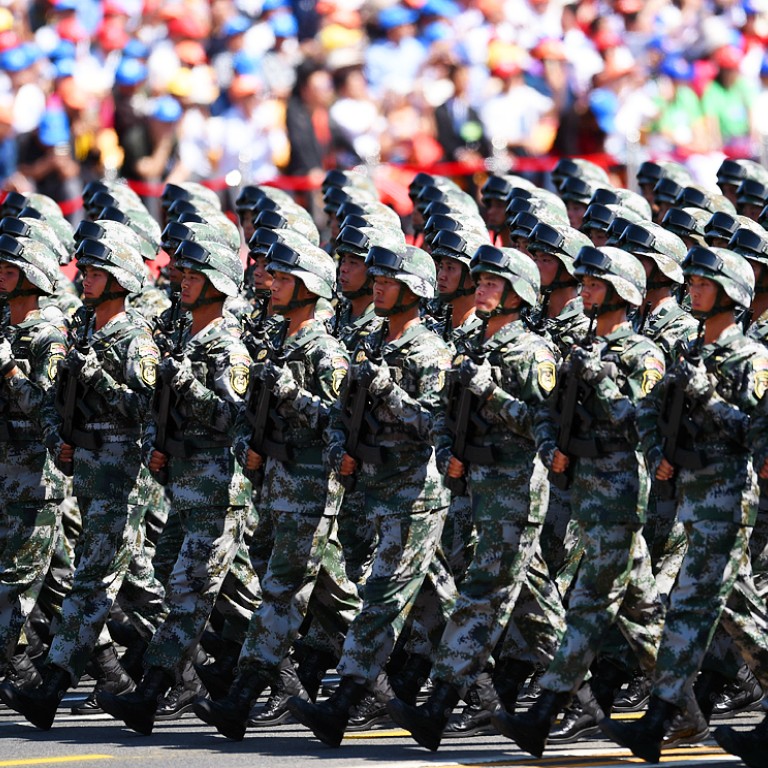
China's PLA reforms slash political posts as part of a 300,000 cut in non-combat personnel by 2017
Cut of 300,000 largely non-combat staff by 2017 will leave military with two million personnel
Many rank-and-file political officers are expected to lose their jobs in the reform of the People's Liberation Army.
However, the Chinese Communist Party's grip on the military's political ideology will be tightened with the setting up of a discipline commission that will take over the responsibilities for military discipline from political officers and their deputies in lower level military units.
A unique feature of the PLA means political officers - the most senior of whom are commissars - hold military rank equalling that of unit commanders to ensure the party's absolutely control over combat forces. Political officers, who exist at all levels, oversee discipline and manage non-combat units, including medical, communications, academies, promotion of personnel, as well as army entertainment troupes.
President Xi Jinping said a cut of 300,000 military personnel by 2017 - affecting many non-combat units overseen by the political departments - would lead to the PLA downsizing to two million personnel.
The decision to have fewer non-combat personnel means there will be no need for so many political officers.
"The planned reorganisation will affect many departments, with non-combat units either removed or downsized, so it will lead to a fewer political officers," Hong Kong-based military observer Liang Guoliang said.
Analysts said the number of political officers had increased in the past few decades.
During wars in the 1930s and 1950s, political commissar posts were held by commanders or deputy commanders. Former paramount leader Deng Xiaoping and former defence minister Peng Dehuai were political commissars.
In the 1950s, an army unit would have one political commissar and one deputy. S ome local military commands now have six deputy political commissars.
Such posts have become hotbeds for corruption. Disgraced Central Military Commission vice-chairman Xu Caihou , a former Shenyang political commissar, took bribes in return for making appointments.
Chen Daoyin , an associate professor at Shanghai University of Political Science and Law, said "the overhaul means the political status of departments and political commissars will be weakened … and the new disciplinary commission will help the party control the army more".


